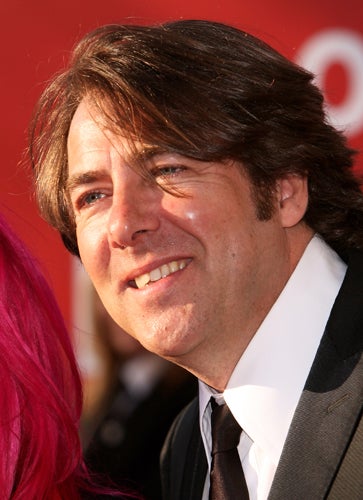BBC1 to curb prime-time swear words
Clampdown on F-words to promote family viewing after report into Ross affair

Your support helps us to tell the story
From reproductive rights to climate change to Big Tech, The Independent is on the ground when the story is developing. Whether it's investigating the financials of Elon Musk's pro-Trump PAC or producing our latest documentary, 'The A Word', which shines a light on the American women fighting for reproductive rights, we know how important it is to parse out the facts from the messaging.
At such a critical moment in US history, we need reporters on the ground. Your donation allows us to keep sending journalists to speak to both sides of the story.
The Independent is trusted by Americans across the entire political spectrum. And unlike many other quality news outlets, we choose not to lock Americans out of our reporting and analysis with paywalls. We believe quality journalism should be available to everyone, paid for by those who can afford it.
Your support makes all the difference.The BBC yesterday pledged to ban "malicious intrusion, intimidation and humiliation" from its entertainment programmes as part of a review of its editorial standards in the wake of the "Sachsgate" scandal involving Jonathan Ross and Russell Brand.
A 79-page BBC report into the use of strong language, sexual content and the behaviour of its presenters also called for the tightening of controls on the use of swearing on BBC1 between 9pm and 10pm to ensure that the corporation's flagship channel retained its ability to bring families together.
The study, which the BBC said was the "most exhaustive" piece of audience research it has undertaken on taste and standards, will attempt to draw a line under the scandal caused last October by the obscene answering machine messages left for the Fawlty Towers actor Andrew Sachs by Brand and Ross which were broadcast on BBC Radio 2.
The messages about Brand's sexual relationship with Sachs's granddaughter initially passed largely unnoticed but an article on the programme by a Sunday newspaper sparked 44,790 complaints to the BBC and a crisis of confidence in the corporation's higher echelons. In April this year, Ofcom fined the Beeb a record £150,000 for infringing decency rules.
The report, entitled Taste, Standards and the BBC, and written by the corporation's creative director Alan Yentob, acknowledged heavy criticism of the failure by producers to prevent the broadcast, saying that any similar "unacceptable" behaviour would be the subject of a comprehensive ban.
Calling for new guidance on the issue, the document said: "BBC programmes must never condone malicious intrusion, intimidation and humiliation. While they are all aspects of human behaviour which may need to be depicted, described or discussed across the BBC's factual and non-factual output, they must never be celebrated for the purposes of entertainment."
The conclusions of the report, which includes the results of interviews with 2,700 viewers, will form the basis for new editorial guidelines submitted next month to the BBC Trust, the corporation's governing body, ahead of their implementation by early next summer.
Despite widespread dissatisfaction with light reality shows such as Big Brother and concern at gratuitous swearing by celebrity chef Gordon Ramsay, a Mori survey found that 68 per cent of Britons were satisfied with the standards used in making television. BBC1 remained the most trusted of the terrestrial television channels with 61 per cent saying it had "high standards", compared to 31 per cent for ITV1 and 11 per cent for Five.
The study found that 33 per cent of people were worried about the use of strong language on television and a clearer policy was therefore needed on the bleeping of strong language and warning audiences of graphic content in programmes. The report said the BBC needed to "always recognise that some sections of its audiences are more readily offended than others".
The corporation said it recognised the "particular offence" that can be caused by the use of the "c-word" in programmes and every instance of its use on television had to be personally signed off by Jana Bennett, the director of BBC Vision.
The BBC Trust said it was particularly concerned that highly offensive language should be used on BBC1 only after the 9pm to 10pm watershed and expected an undertaking to that effect in the report to feature in the new guidelines.
David Liddiment, a trust member, said: "Ensuring audiences aren't exposed to unnecessarily offensive content, while guarding against stifling creativity, is a balancing act."
On the box: Viewing habits
56% don't want to watch reality TV shows such as Big Brother or I'm a Celebrity...
74% of those aged 75 or over have found something on TV offensive.
62% say that swearing is acceptable on TV because it reflects modern speech.
71% have a television in their bedroom.
55% watch TV until 10pm or beyond on a weekday.
13% first heard a swear word that they use on TV.
35% believe that avoiding offence is more important than freedom of speech.
48% disagree that the BBC should not be afraid to show offensive material.
60% believe that performers who swear lack respect for the audience.
Join our commenting forum
Join thought-provoking conversations, follow other Independent readers and see their replies
Comments